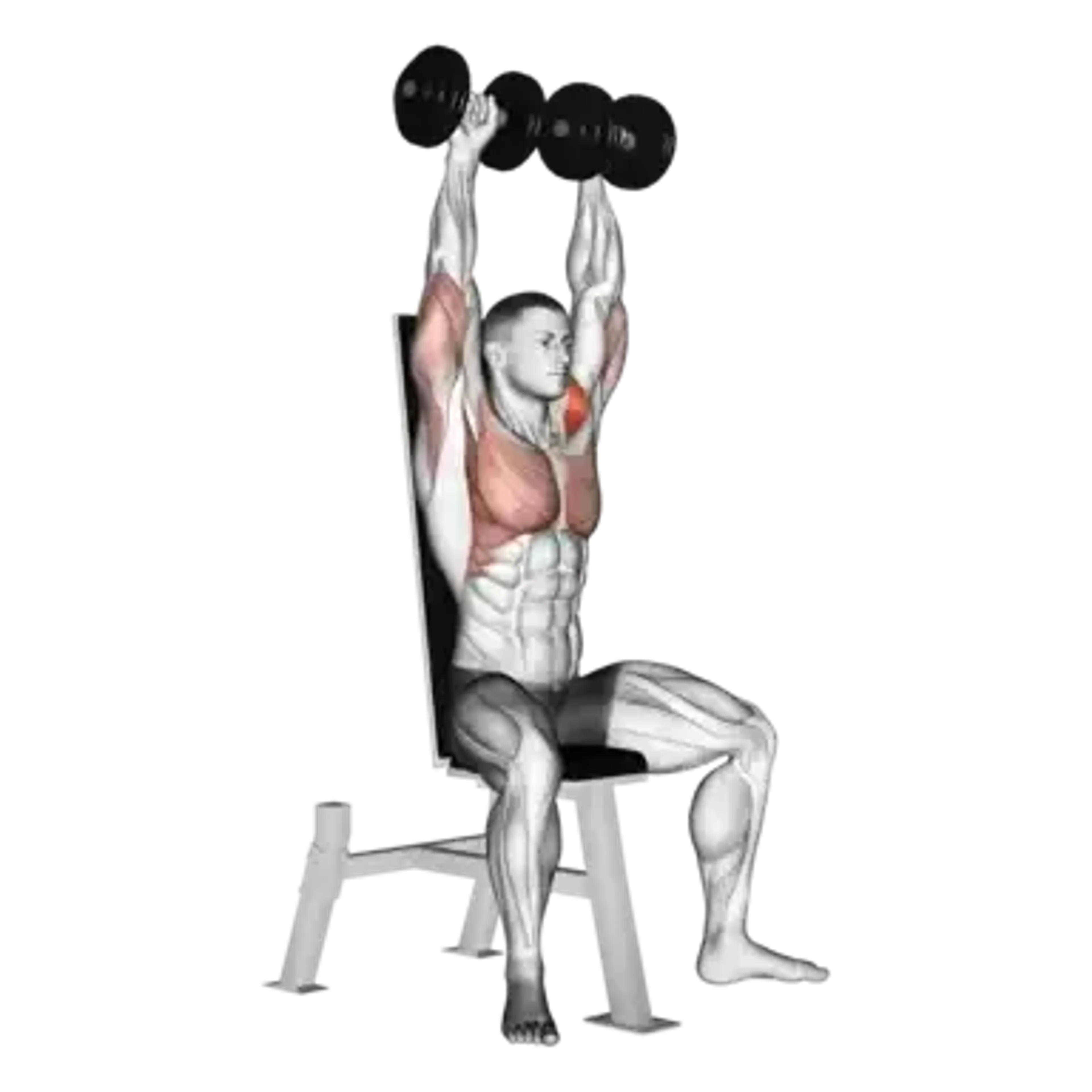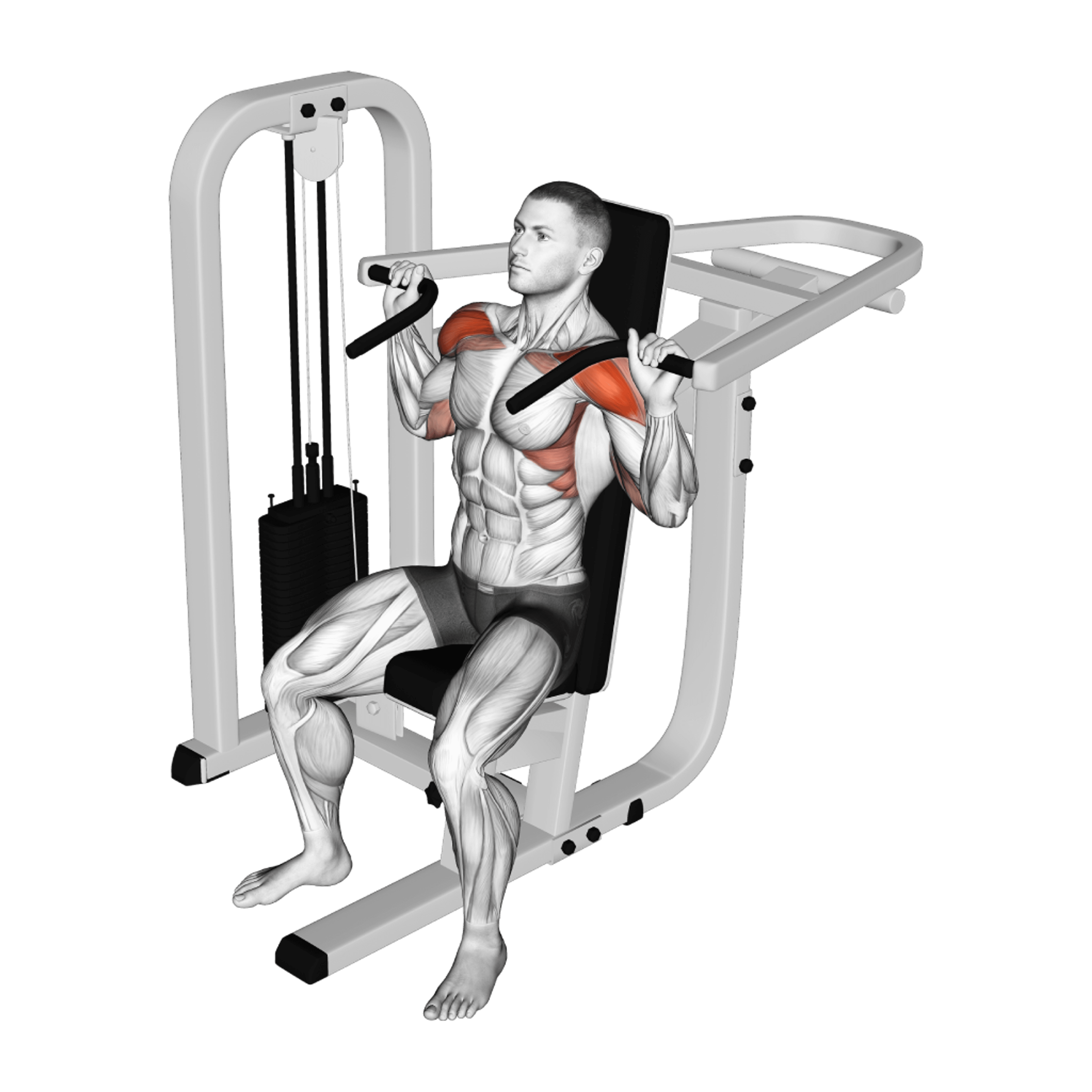Seated Barbell Shoulder Press

Overview
- Primary Focus:
- Shoulders.
- Equipment:
- Barbell and bench.
- Difficulty:
- Intermediate.
General Information
Seated Barbell Shoulder Press is a compound exercise that primarily targets the shoulders and secondarily engages the triceps. It is an intermediate-level exercise that provides stability by allowing the lifter to focus on pressing without the need for additional core engagement, as seen in standing variations.
This exercise is highly effective for building shoulder strength and size, emphasizing the anterior (front) and lateral (side) delts. It also recruits the upper trapezius and triceps to assist in the pressing movement. Because it minimizes lower-body involvement, it is an excellent choice for individuals looking to isolate shoulder development while maintaining strict form.
Another way to perform this exercise is with dumbbells instead of a barbell. The dumbbell variation allows for a greater range of motion and requires more stabilization, whereas the barbell version enables heavier lifts and more symmetrical movement.
Muscles Worked
- Deltoid
- Primary
- Triceps Brachii (Lateral Head)
- High
- Triceps Brachii (Long Head)
- High
- Lower Trapezius
- Medium
- Serratus Anterior
- Medium
- Upper Trapezius
- Medium
- Pectoralis Major
- Low
- Erector Spinae
- Minimal
Instructions
- Sit on a bench with back support, ensuring your feet are firmly planted on the ground.
- Grip the barbell slightly wider than shoulder-width with palms facing forward.
- Unrack the barbell and hold it at upper chest level with elbows slightly forward.
- Press the barbell straight up until your arms are fully extended without locking the elbows.
- Lower the barbell back to the starting position in a controlled manner.
- Repeat for the desired number of repetitions, maintaining proper form throughout.
Build Your Personal Workout Plan
Sign up to get 5 free AI-generated workouts made for you.
Common Mistakes
Injuries
Seated Barbell Shoulder Press is a medium-risk exercise, primarily due to the stress placed on the shoulder joints.
One common risk is shoulder impingement, which occurs if the barbell is lowered too far or if poor shoulder mobility is present. To minimize this risk, avoid lowering the bar behind the head and ensure a proper warm-up before lifting.
Another potential issue is lower back strain, especially if excessive arching occurs. Keeping your core engaged and pressing your back against the bench will help prevent unnecessary stress on the spine.
Lastly, wrist and elbow discomfort can arise if the grip is too wide or narrow. Adjusting hand placement and ensuring controlled movement can reduce unnecessary strain on these joints.
Alternative Exercises
Frequently Asked Questions
- Q: Can beginners perform the Seated Barbell Shoulder Press?
Yes, but beginners should start with light weights and ensure proper form before progressing to heavier loads.
- Q: Is the Seated Barbell Shoulder Press better than the Dumbbell Shoulder Press?
Both are excellent choices. The barbell version allows for heavier lifts, while the dumbbell version promotes better muscle balance and a greater range of motion.
- Q: How deep should I lower the barbell?
Lower the bar to around chin or upper chest level while keeping your elbows slightly forward to avoid shoulder strain.
Overview
- Primary Focus:
- Shoulders.
- Equipment:
- Barbell and bench.
- Difficulty:
- Intermediate.




